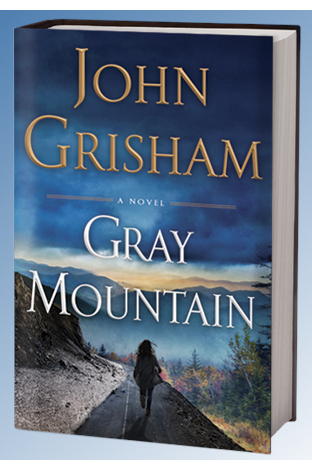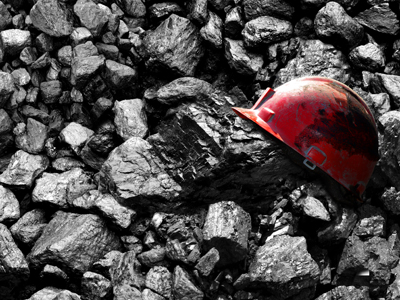
Reflections on Vancouver, British Columbia and other topics, related or not
Pity poor Appalachia
John Grisham’s Gray Mountain depicts
a country corrupted by Big Coal
Greg Klein | November 21, 2014
An activist lawyer lists the origins of some offending mine
operators: “We got Russians, Ukrainians, Chinese, Indians,
Canadians, as well as the usual lineup of Wall Street
cowboys and local turncoats.”
Just as a former big boss of Big Coal faces criminal prosecution following the death of 29 Appalachian miners, a best-selling novel castigates the industry for its devastation of that region. On November 20 former Massey Energy CEO Don Blankenship pleaded not guilty to four charges resulting from the 2010 Upper Big Branch mine disaster in West Virginia. John Grisham’s 27th novel, Gray Mountain, portrays an industry that ruthlessly destroyed the environment as well as the health of workers, their families and anyone else living there, with the help of politicians, judges, regulators and even goon squads, both civilian and FBI.
The charges against Blankenship could almost come from Grisham’s book. Three other former Massey executives have already been convicted of criminal offences involving Upper Big Branch. Blankenship’s victory in a previous legal battle has been said to have provoked Grisham into writing The Appeal, an indictment of the American electoral and judicial systems.
Massey Energy’s Upper Big Branch workers “were intimidated,” Forbes quoted Mike Caputo, a West Virginia legislator and VP of the United Mine Workers of America. “Records were falsified. Advanced warnings of inspections were given. Two sets of books were kept. There was a lack of enforcement. The list goes on, and on, and on. The more I read about the Upper Big Branch tragedy, this wasn’t just bad business practice. This was akin to organized crime.”
But while it was a methane gas explosion that killed the 29 underground miners, Grisham’s latest book, set in 2008 and 2009, focuses on mountain-top removal. Described as “strip mining on steroids,” the practice destroyed about 600 of the region’s mountains over 30 years, according to Grisham.

The company “literally attacks the mountain with all manner of heavy equipment,” the story’s activist lawyer Donovan Gray tells newcomer Samantha Kofer. “First it clearcuts the trees, total deforestation with no effort at saving the hardwoods. They are bulldozed away as the earth is scalped. Same for the topsoil, which is not very thick. Next comes the layer of rock, which is blasted out of the ground. The trees, topsoil and rock are often shoved into the valleys between the mountains, creating what’s known as valley fills. These wipe out vegetation, wildlife and natural streams…. If you’re downstream, you’re just screwed. As you’ll learn around here, we’re all downstream.”
Samantha, whose promising career in corporate law ended abruptly with the Lehman Brothers-induced recession, takes an unpaid internship at a Virginia legal aid clinic/social services agency. There she encounters a world of Big Coal-induced woe.
Reckless practices send boulders flying toward family homes. Contaminated drinking water turns communities into “cancer clusters.” Overloaded, speeding coal trucks in West Virginia alone kill one person a week. Excessive exposure to coal dust gives miners a wasting disease called black lung. Coal companies deprive dying workers of compensation.
Fighting back are Donovan and his lawyer aunt, Mattie Wyatt, who both had parents screwed over by coal companies.
Big Coal’s regime gets support from cosy regulators and watchdogs, elected judges who depend on campaign contributions, politicians who legislate favours for the industry, doctors who lie under oath and lawyers who cover up medical evidence. The FBI uses legal intimidation. Illegal intimidation comes from the companies’ armed thugs who, it’s suggested, will murder their opponents.
Lowest of the low is Krull Mining, “a company with the worst safety record in the history of U.S. coal production and an owner who was reputed to be one of the deadliest Russian gangsters in Putin’s frat pack.”
Denied benefits for over a decade, one dying miner says, “They cheated, they won, and they’ll do it again because they write the rules…. They got the money, the power, the doctors, and I guess the judges. Some system.”
Of course despair doesn’t sell books. So Grisham, a one-time Mississippi lawyer, has Donovan, Mattie and eventually Samantha launching heroic counterattacks.
Coal’s controversy divides the people of the region, Grisham writes. A bumper sticker battle features opposing slogans like “Save the Mountains” and “Like Electricity? Love Coal.”
“Coal was the fabric of life in these parts, but the strip mining had divided the people,” Samantha reflects. “According to her Internet research, its opponents argued that it destroyed jobs, and they had the numbers to support them. Eighty thousand miners now, almost all non-union and half working in surface mines. Decades earlier, long before they began blasting tops off mountains, there were almost a million miners.”
Something to keep in mind, though: If Grisham’s portrayal is fair, and if these people have their facts right, the Appalachian and British Columbian coal industries are poles apart.
What both areas now share is devastation by coal prices, less than half what they were three years ago. Mines are shutting down, throwing people out of work. In a strategy that parallels Down Under iron production, Australia has increased its low-cost coal output, further damaging the North American industry.
Yet the Age of Coal persists, despite petroleum and uranium. According to the World Coal Association, the fuel “provides 30.1% of global primary energy needs and generates over 40% of the world’s electricity. It is also used in the production of over 70% of the world’s steel.” Twenty-year forecasts from the Coal Association of Canada call for a 50% increase in metallurgical coal demand, with demand for thermal coal more than doubling.
One wonders if Blankenship will watch that happen from a prison cell.
